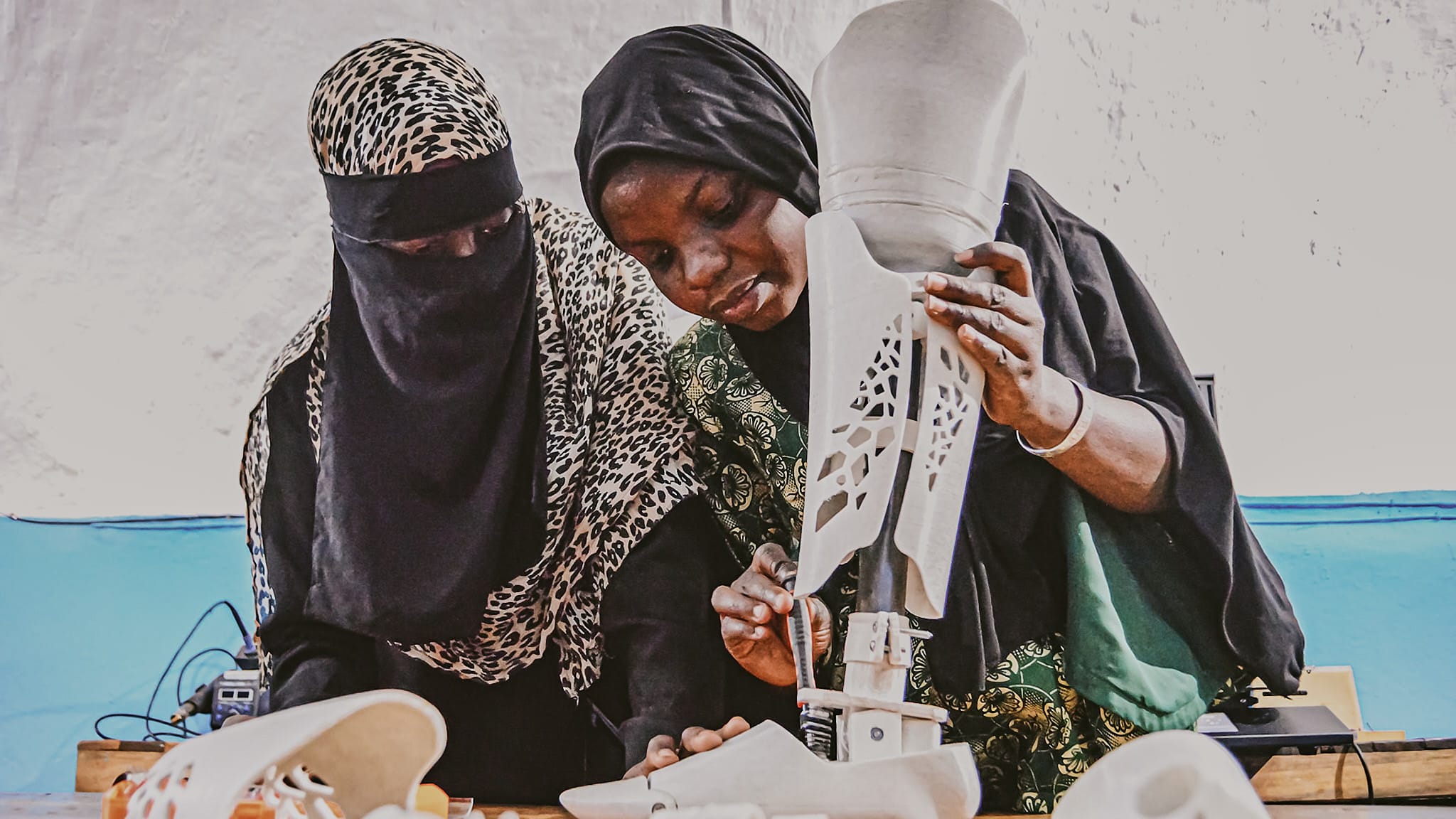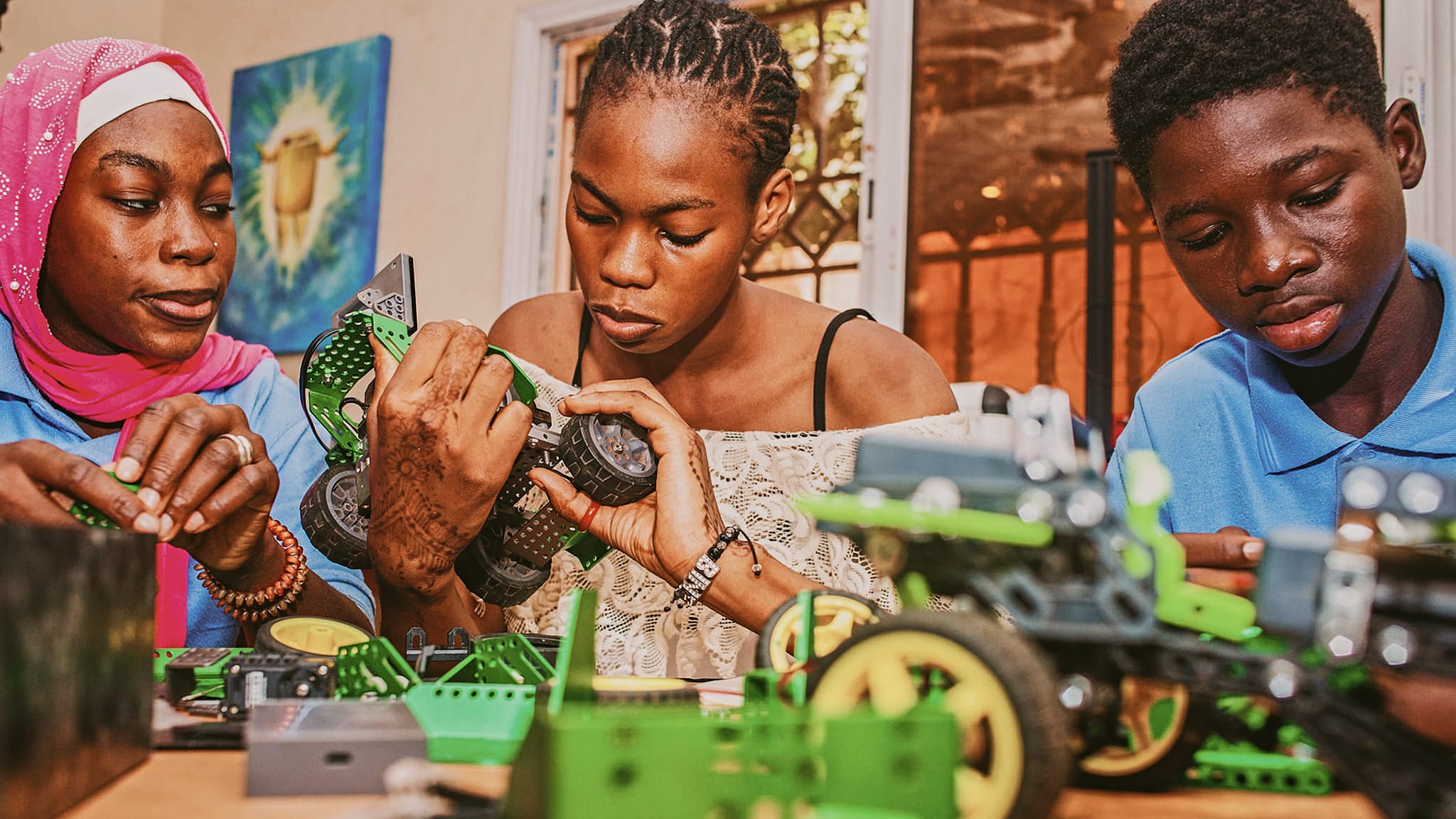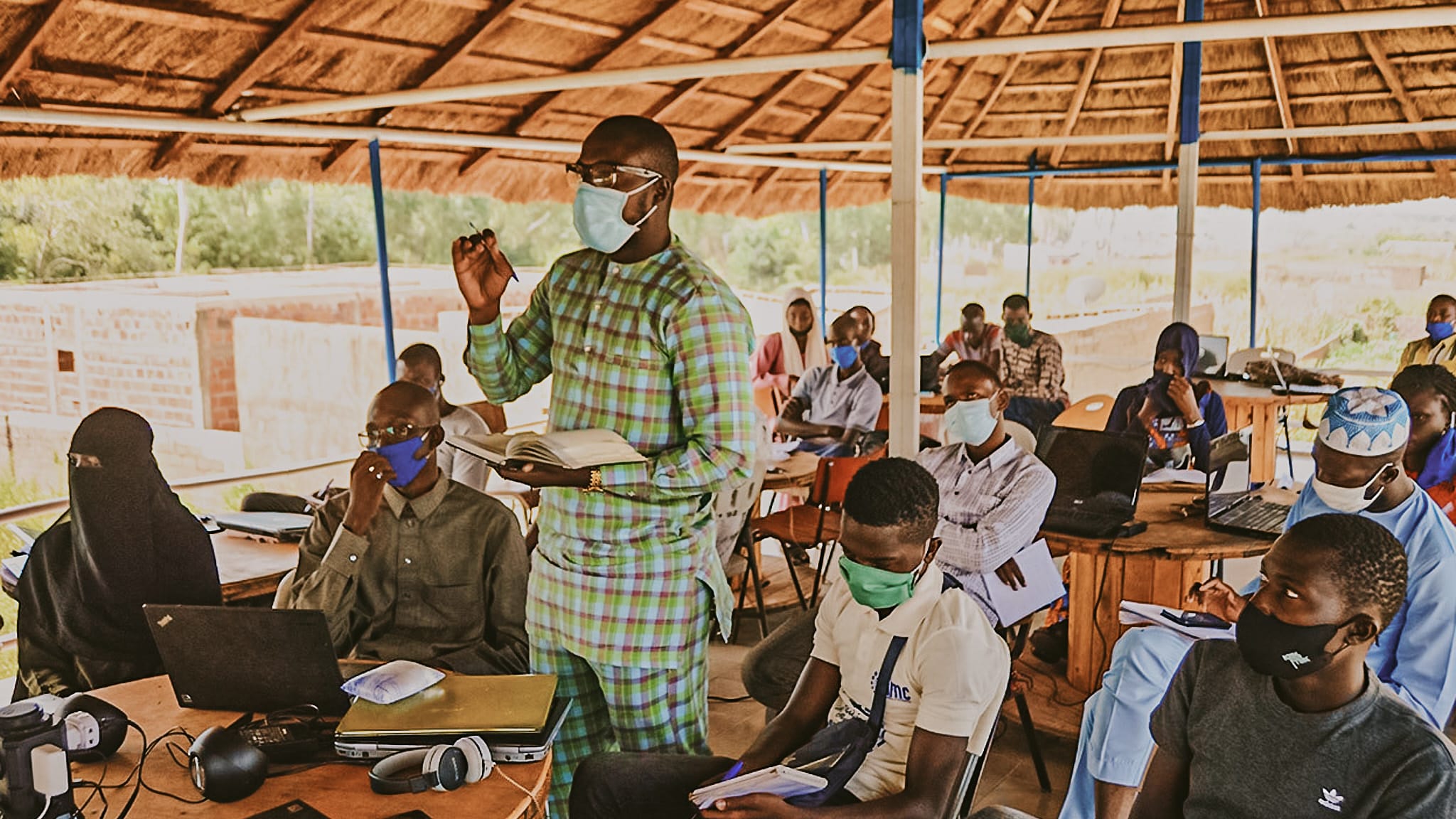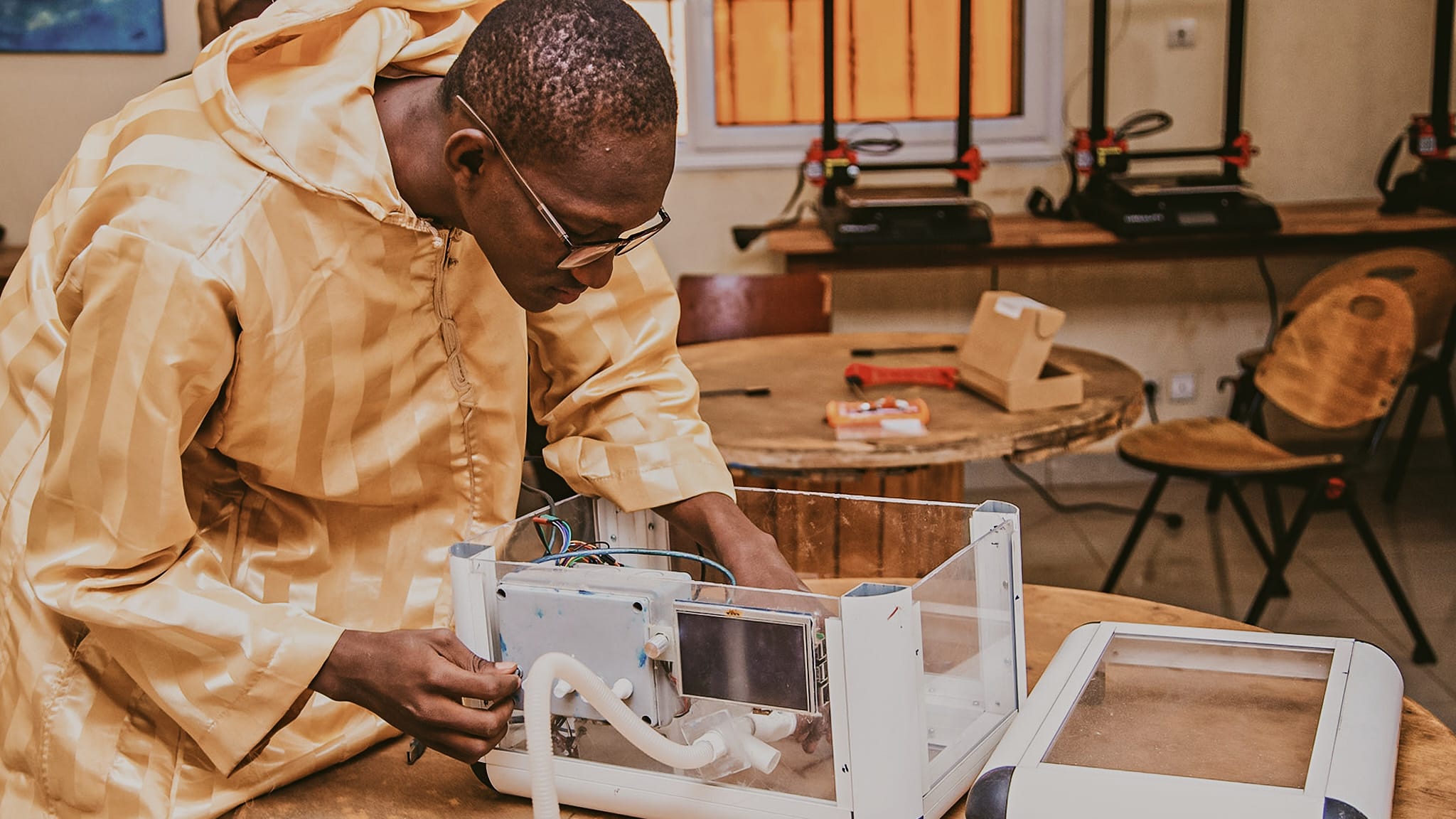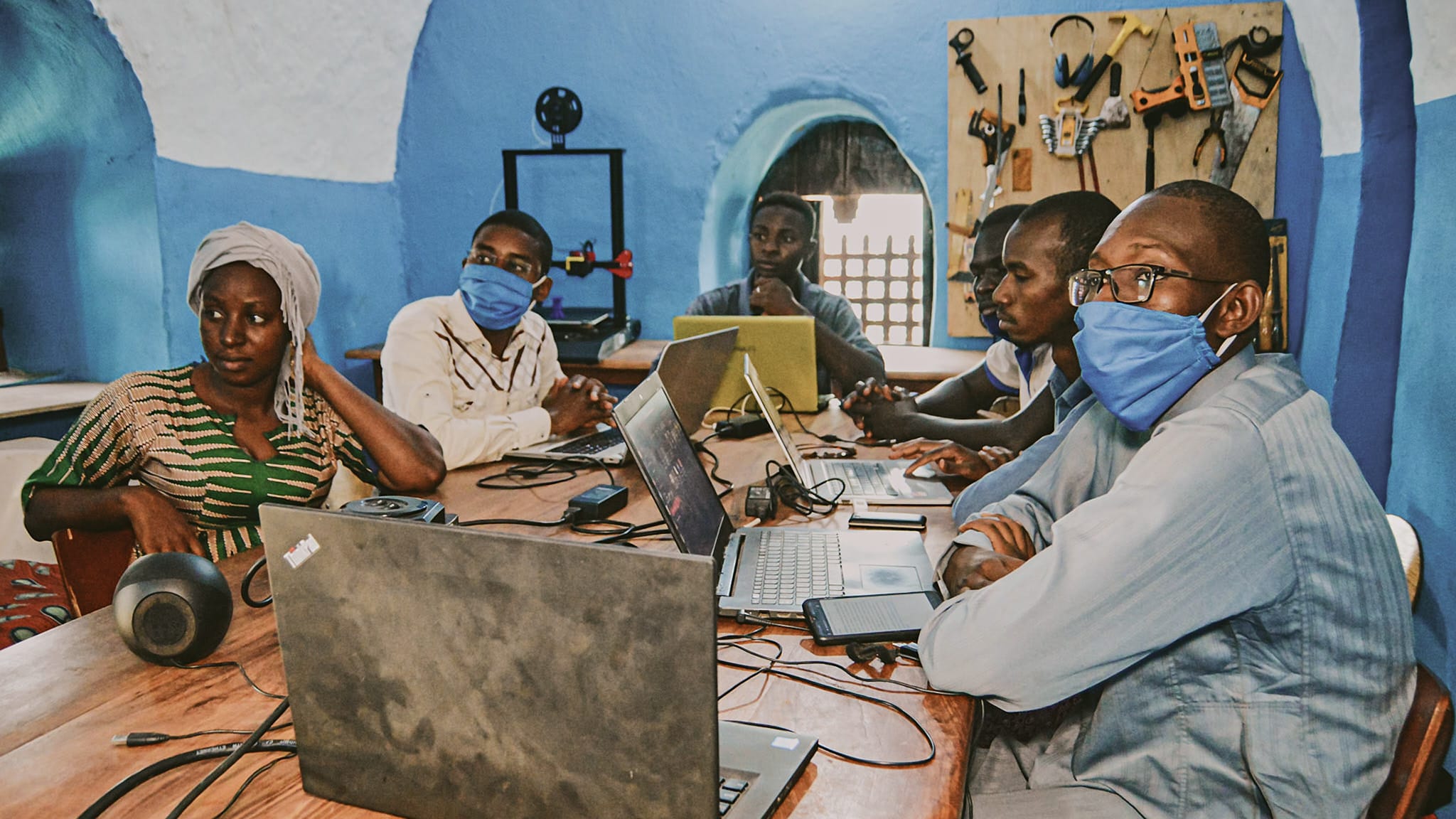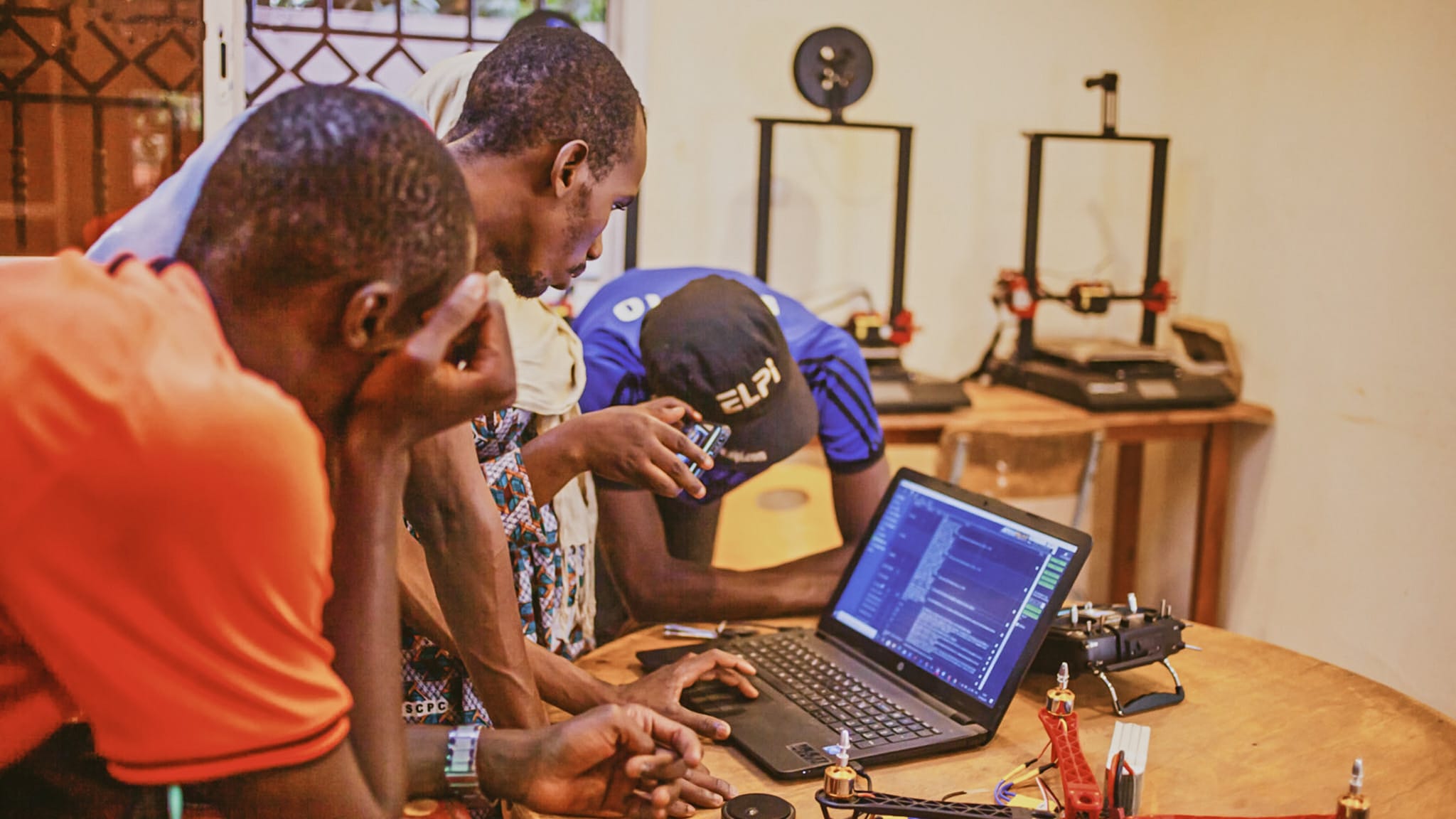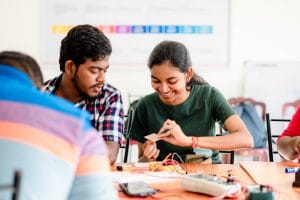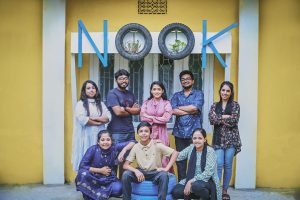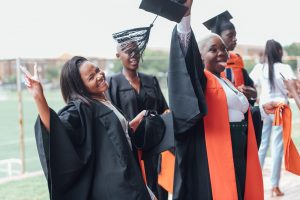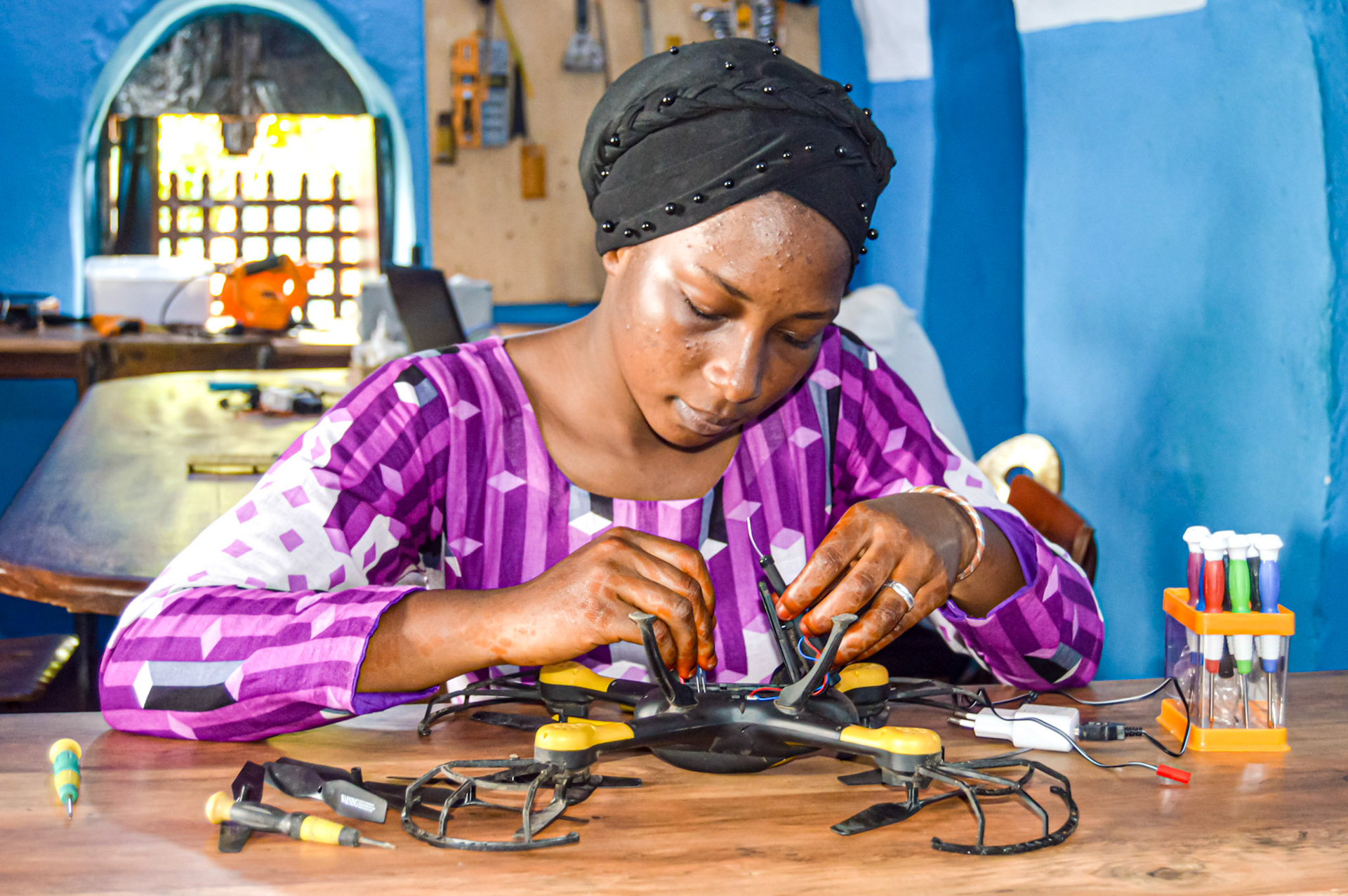
Revolutionising Africa’s education landscape with high-tech and local know-how
Background
Every year, millions of young people flood onto the African labour market. But in most regions of the African continent, there are not enough jobs for them. Even university graduates often can’t find employment. The Kabakoo founders Michèle Traoré and Yanick Kemayou have experienced this first-hand – in search of better opportunities, they emigrated to Europe. However, in 2018 they decided to return home to Mali and contribute to fixing the problem which forced them into migration: The lack of locally relevant and high-quality learning opportunities which at the same time are affordable for the masses.
Innovations “Made in Mali”
Kabakoo Academies has crafted an unconventional offering through a learning approach focused on local impact and the integration of local knowledges with cutting-edge technologies. Overall, Kabakoo’s approach to education is challenge-based: The learners set out to solve a local problem that they have identified themselves. To help them design sustainable solutions for these issues, Kabakoo provides them with technology-based tools (for example 3D printers and IT programmes), local trainers, and a global cooperation network.
By acquiring skills across innovative areas such as rapid prototyping, robotics, programming & web design, or even in the field of biotechnology, groundbreaking projects and sustainable livelihoods for the local population are created. Supported by Kabakoo trainers on site and specialists worldwide, learners develop viable business models, such as for the sustainable utilisation and marketing of shea butter, an easily available local raw material. Other teams are working on an automated irrigation system for local agriculture, a low-cost tool for monitoring local air quality, a new approach to municipal waste recycling, or the development of low-cost, 3D printed prostheses.
Thanks to these and other innovations, Kabakoo has been recognised by UNESCO as one of the most innovative and groundbreaking learning organisations and selected by the World Economic Forum as a global pioneer for the future of learning.
Since its launch in 2018, Kabakoo has accompanied almost 3,000 young people in West Africa who are now stewarding thriving local communities and ecosystems. Working together with the knodel foundation and other supporters, Kabakoo aims to annually serve hundred thousand of young Africans in a dozen cities by the end of the decade.

